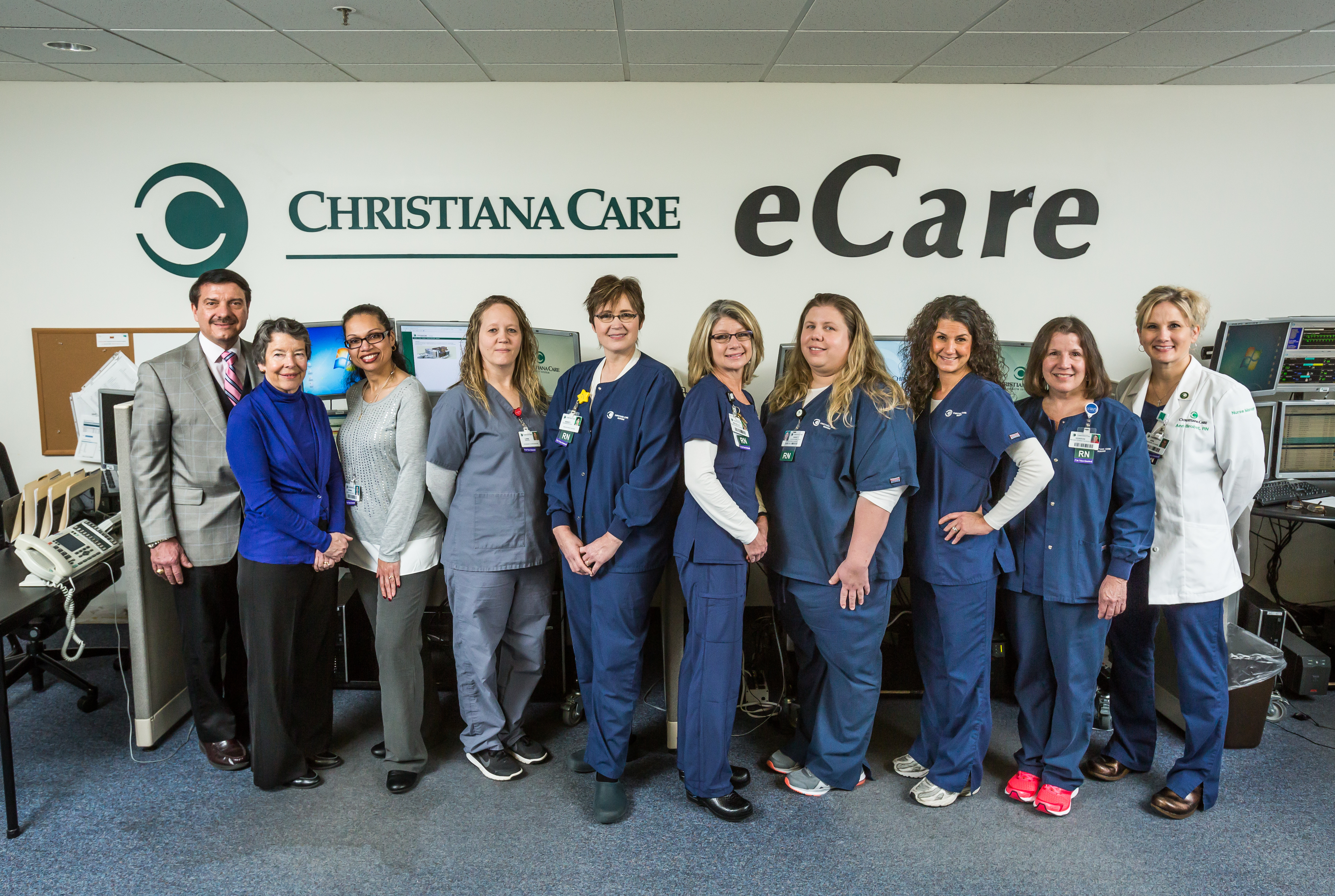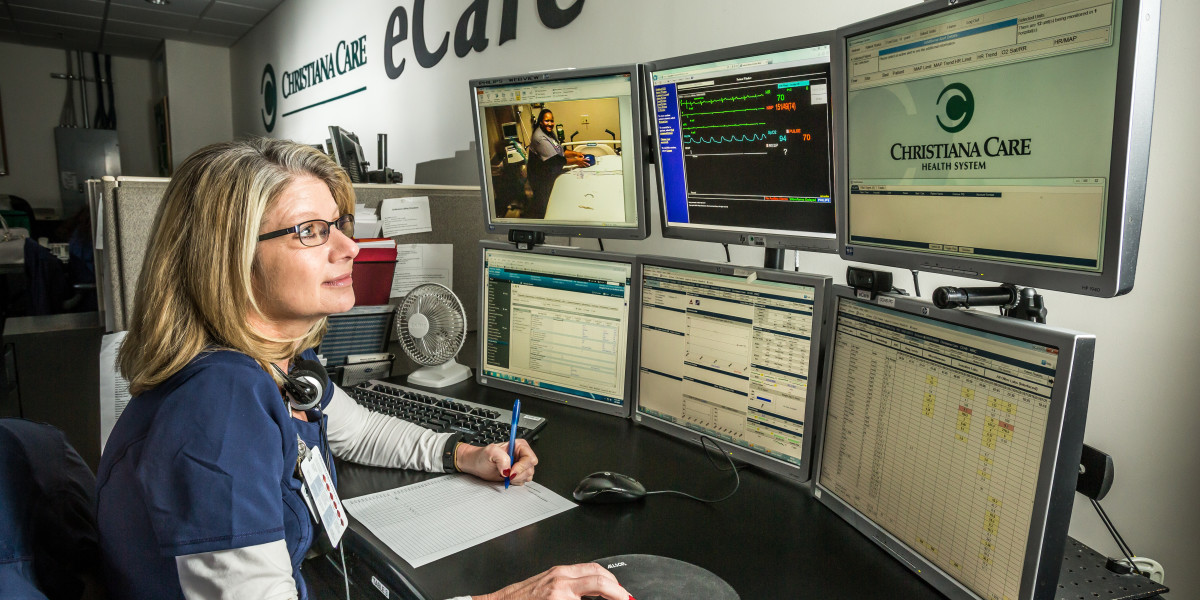For 10 years, eCare has been providing the most seriously ill patients with an extra layer of safety as physicians and nurses who telemonitor patients collaborate with clinicians at the bedside.
A virtual Intensive Care Unit, eCare supports patients in Emergency Departments at Christiana and Wilmington hospitals, as well as in four ICUs: Wilmington ICU (WICU); Medical ICU (MICU), Cardiovascular ICU (CVCCC), and Neuro ICU (NCCU).
“We have the capability to virtually round on our patients by reviewing their care plans and orders in the electronic medical record and visualizing them via a camera,” said Ann Brobst, MSN, RN, PCCN, nurse manager of eCare, Heart & Vascular Float Pool and Flex Monitoring. “This is beneficial to the bedside nurse, patients, and families of these critically ill patients.”
When telemonitoring first was introduced, there was an initial dose of skepticism, said Donna Casey, MA, BSN, RN, NE-BC, FABC, vice president, Patient Care Services, Cardiovascular and Critical Care, who was nurse-manager at WICU when eCare was rolled out in 2005.
“Initially, it was viewed by some as Big Brother watching. Today, it’s a collaborative effort between the bedside and eCare,” she said. “Our patients and family view eCare as a guardian angel, knowing that someone is watching over them.”
Telemonitoring also contributes to cost savings. It is estimated that interventions by eCare physicians and nurses added as much as $9.74 million in value to Christiana Care between October 2014 and October 2015.

Christiana Care’s eCare nurses are highly experienced, having between five and 40 years of ICU experience. Their partnership with bedside nurses also includes tracking data and monitoring line usage in the Cardiovascular and Neuro ICUs. eCare uses a web-based access database for patient information including diagnosis, history, continuous infusions, active problems and items concerning follow-up and hand-offs.
“In addition, we have the support of Chicago Advocate physicians who virtually round on our ICU patients and are available to prescribe medications, contribute to patient care through medical management, care progression and emergency response from 7 p.m. to 7 a.m.,” said Albert Rizzo, M.D., eCare medical director.
Telemedicine is an evolving modality for medicine in the U.S. and will continue to develop as health systems harness technology to add value to care, said Virginia Collier, M.D., Hugh R. Sharp Jr. Chair of Medicine.
“We have among the best outcomes in the nation in our ICUs, and eCare is an integral part of our successful ICU model,” she said. “Our eCare nurses and physicians provide a backup layer of support to ensure best practices in the ICU. There are multiple examples in which eCare has picked up opportunities to improve care. The eCare nurses, who round with ICU Value Improvement Teams, are always on the lookout for ways in which they can partner with the unit teams to take better care of our patients.”
Casey notes that in the past year eCare helped to identify and correct 416 errors in medication administration, and eCare physicians contributed to the active management of medical problems 616 times.
“We also partner with the units we serve to help them meet project initiatives that align with organizational goals outlined for their patient population,” Brobst said. “Our nurses collaborate with the residents and nursing staff regarding the needs of the patients and have the expertise to help make comprehensive decisions with the bedside.”
Based on its successes, eCare has become an effective tool in caring for critically ill patients.
“Think of eCare as Extra Care,” she said.



